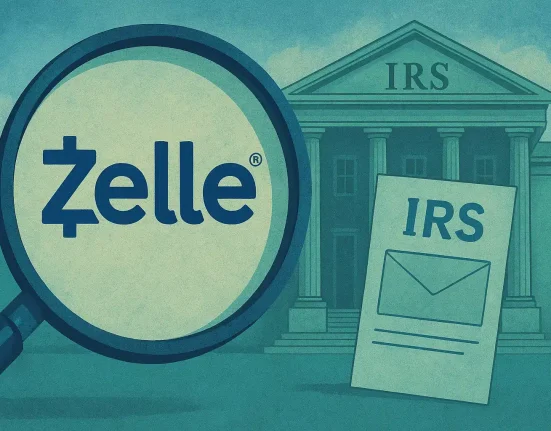

New York’s casino future isn’t just about shiny resorts or blackjack tables under chandeliers. It’s also playing out in crypto wallets—quietly, quickly, and often outside official boundaries. While state regulators focus on licensing retail spaces and overseeing sports betting apps, thousands of players have shifted to web-based platforms that don’t ask for government IDs or card numbers.
Some of these sites stand out not because they promise luxury, but because they promise speed. No verification queues. No delayed payouts. Just open the site, deposit crypto, and play. Users report playing cash games and crypto poker without delays or paperwork on platforms that cater to fast-moving, privacy-aware gamblers (source: https://coinpokeraustralia.com/).
That might seem fringe, but in New York, where financial systems can feel slow and fees add up fast, it’s easy to see the appeal. The speed of crypto transactions—especially with popular coins like USDT or Ethereum—lets users jump from poker to blackjack in seconds. Many don’t even need to create a username; some use wallet addresses as identity.
Still, this type of convenience comes with risks. In private chats and public forums, New York players compare notes on which offshore sites actually pay out, which ones quietly block accounts, and which coins offer the lowest transaction fees. Crypto casinos aren’t illegal in the state, but they’re not officially allowed either. That leaves gamblers in a legal gray zone—one where terms of service replace consumer protection laws. According to a FingerLakes1 report, the rise of iGaming in New York shows growing reliance on offshore and unregulated platforms, with some users already placing digital bets on unlicensed sites.
The appeal isn’t just speed—it’s control. On blockchain-based platforms, players often hold their funds in non-custodial wallets until the moment they bet. That removes the middleman. It also creates an environment where people don’t feel watched. There’s no credit check. No tracking of deposits against income. Just chips and cards and outcomes.
This level of anonymity is part of what regulators are starting to examine more closely. Though sports betting has boomed in New York since legalization, the crypto side of gambling still lacks defined guardrails. State lawmakers have largely focused on tax revenue and responsible gambling around traditional platforms. But they haven’t yet addressed the rise of offshore, token-based gameplay.
That might soon change. Federal bills targeting stablecoins and digital assets are gaining ground in Washington. If passed, they could force platforms—regardless of location—to follow stricter audit and reserve rules. That could ripple out into states like New York, where many users already participate in crypto ecosystems for other reasons—NFTs, DeFi, remittances.
For gamblers who mix entertainment with innovation, the uncertainty doesn’t stop them. In fact, it fuels growth. Each time a crypto-friendly platform launches a new feature—like live dealer rooms, integrated wallets, or lower gas fees—more New Yorkers quietly join. Some use VPNs. Others access apps directly. Most don’t ask questions, unless something goes wrong.
And that’s where the real issue lies. When these platforms work well, they feel frictionless. But when they fail, users have few options. There’s no state helpline. No arbitration body. If funds vanish, they vanish. That’s why seasoned players spend as much time vetting platform history as they do reading odds tables. Trust, in these circles, isn’t assumed—it’s earned.
Meanwhile, traditional casinos and online sportsbooks are trying to catch up. Some have begun exploring blockchain tools behind the scenes—tokenized rewards, smart contract-based betting, or crypto loyalty programs. But they move more slowly. They’re built to comply, not experiment.
New York’s gaming commission has yet to issue any formal stance on crypto-specific wagering. But industry observers believe regulation is inevitable. With billions in potential tax revenue on the line—and a growing number of residents already playing—the state may soon be forced to address the elephant in the digital room.
Until then, crypto casinos will remain unofficial, unlicensed, and undeniably popular. They’re not waiting for permission. They’re already part of the gambling conversation—especially among tech-savvy players who want more speed, more privacy, and fewer limits.
According to ASIC, Australia’s financial authority, has issued similar warnings on the convergence between crypto and gambling, citing the risk of addiction and lack of user protection. The regulator specifically flagged the dangers of trading crypto-related products through unlicensed platforms, emphasizing the potential for harm among retail users. This kind of parallel in regulatory tone signals a wider concern that spans borders.
Meanwhile, an explainer notes how crypto gambling is becoming an “inevitable evolution” in online casinos, highlighting that player habits are already shifting away from fiat and toward faster, decentralized options. The piece also explores how mainstream game developers are experimenting with blockchain integration to enhance engagement, further signaling a broader digital shift. This trend isn’t limited to one state—it’s happening globally, with New York simply being one example of quiet adoption meeting regulatory limbo.
What makes it all even more complex is how invisible this trend is from the outside. There are no flashy billboards for these platforms. No local partnerships. There is a growing base of users who are teaching each other how to fund a wallet, play a hand, and cash out—all without anyone else knowing.
The crypto casino scene in New York might not be fully legal or fully banned, but it’s undeniably real. And unless something changes fast, it’s only going to grow.






